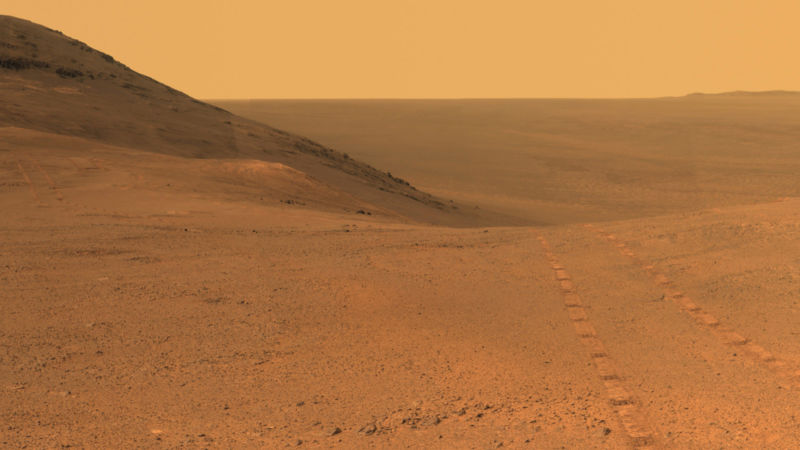Opportunity rover still MIA as dust settles on Mars

Enlarge (credit: NASA/JPL-Caltech/Cornell/Arizona State)
One of the largest dust storms we've ever seen on Mars is finally winding down, raising hopes that the Opportunity rover will soon be able to obtain enough power to resume normal contact with Earth. At this point, there's been no contact with the rover since June, and controllers are getting ready to attempt to get the rover to respond to commands sent over NASA's Deep Space Network.
Unlike the larger Curiosity rover, Opportunity is solar-powered. And as the current dust storm gradually grew to encompass the entirety of Mars' atmosphere, the sunlight that powered it gradually faded out. For several months, Opportunity hasn't been getting enough power to maintain normal function, causing it to shift into a hibernation mode. Once it underwent this shift back in June, the rover has been waiting for enough power to start checking in with its operators here on Earth.
Based on the atmospheric conditions, those operators expect that power is likely to be sufficient in the very near future. There are a number of uncertainties regarding the rover's condition that could mean it won't be making contact as expected, however. The simplest possibility is that the storm deposited enough dust on the rover's solar panels to keep them from reaching sufficient power levels. That could delay its return from hibernation until the last of the dust is out of the atmosphere, or it could even cause the power to stay low until local winds clean the panels off.
Read 3 remaining paragraphs | Comments